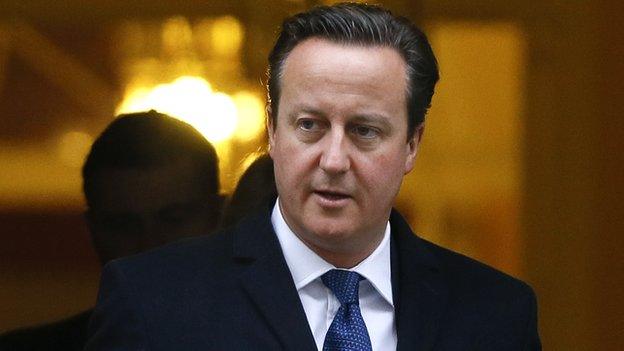Labour back plans for added scrutiny of 'English laws'
- Published
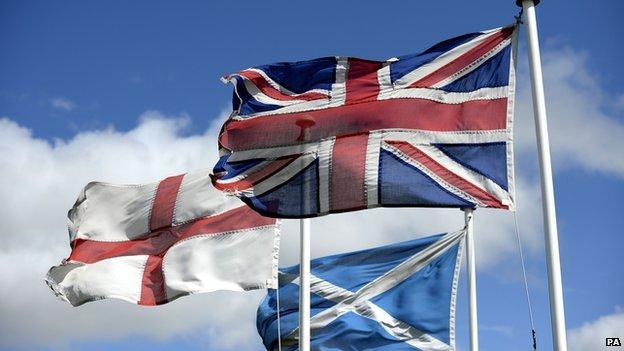
Labour says it has found a "sensible" solution to the question of which MPs should vote on England-only matters.
The party has suggested a committee of English MPs could scrutinise bills that would not apply elsewhere in the UK.
Following the promise of more powers for Scotland made during the independence referendum campaign, there have been calls for English MPs to have greater control over such legislation.
The government is set to publish its own proposals next week.
BBC political correspondent Iain Watson said Labour was keen to pronounce on the question before the government's plans are released.
'Key role'
Prime Minister David Cameron has promised, external to set out plans for "English votes for English laws" but Labour is opposed to this idea, claiming it would create two classes of MPs.
The party boycotted talks led by Conservative House of Commons Leader William Hague, calling it a "stitch up".
Labour's own proposals were put forward in an article for the Politics Home website, external by shadow justice secretary Sadiq Khan and Hilary Benn, the party's communities spokesman.
At the committee stage of the legislative process, detailed examination of a bill takes place and amendments are voted on before it returns to the floor of the House of Commons for more debate.
Labour said an English, or English and Welsh, committee stage would give those MPs "a key role" in considering the legislation, while MPs as a whole would have the final say.
The political balance on the committee would have to reflect all English or English and Welsh MPs and ensure all regions were represented, they said.
Commitment
The shadow ministers added: "Done in the right way, this would be a sensible reform which would strengthen England's voice without ending up creating two classes of MP, and it must now be considered as part of the constitutional convention process."
This was one of the options put forward by the McKay Commission, external set up by the government in 2012 to look at the so-called West Lothian Question.
Labour has also proposed a "senate of the nations and regions" to replace the House of Lords as part of a wide-ranging shakeup, saying this and other ideas should be considered by a Constitutional Convention after May's general election.
A commission set up by Mr Cameron after Scotland's 'No' vote to independence has recommended that the Scottish Parliament should be able to set its own income tax rates, with all of the cash earned staying north of the border.
It also said a share of VAT should be assigned to Holyrood and Air Passenger Duty fully devolved.
The prime minister has said he wants Scottish devolution to be linked to bringing in "English votes for English laws".
Lib Dem leader Nick Clegg has said that by connecting the two issues the Conservatives "risk reneging on the commitment made to the Scottish people".
- Published25 March 2013
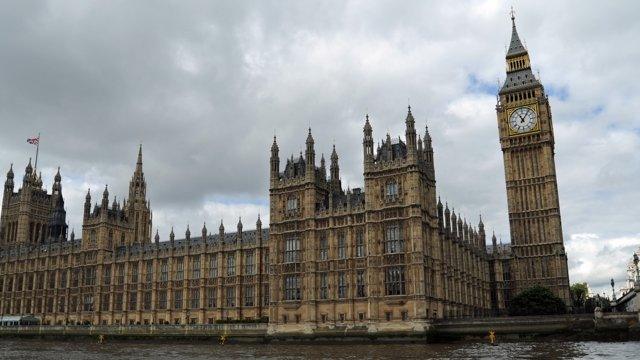
- Published14 October 2014
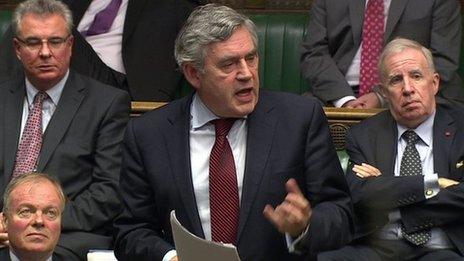
- Published14 October 2014
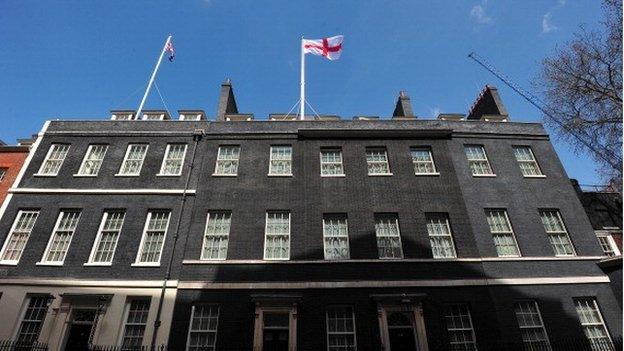
- Published27 November 2014
